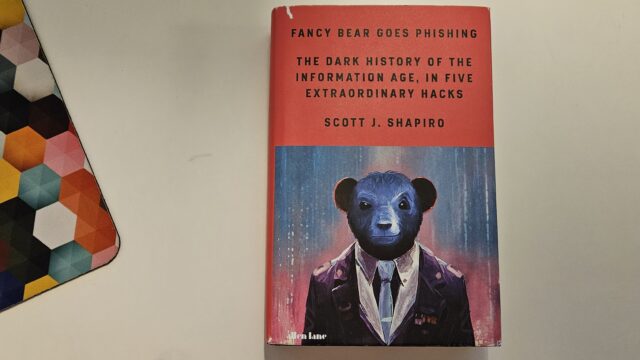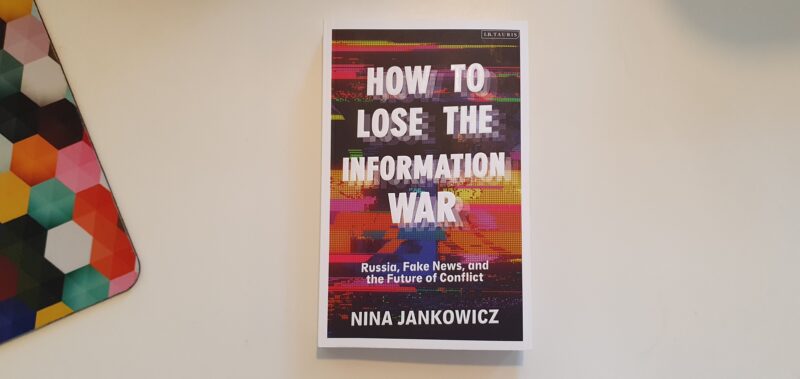Despite my interest in history I’ve never read about the history of Ukraine. Through the years I’ve read some about the Czech Republic and the Soviet Union, but that’s basically all regarding what’s considered Eastern Europe. To overlook the eastern parts of Europe is a common trait in westerners (just like our tendency to count the Czech Republic to the “East” when it’s right in the middle of Europe (if you exclude parts of Russia)).
The Gates of Europe
Due to the war between Russia and Ukraine one book especially popped up as an excellent recommendation and choice for learning more about Ukraine as a part of the world: The Gates of Europe: A History of Ukraine by Serhii Plokhy, professor of Ukrainian history at Harvard University.
The story begins a very long time ago and stops right after a certain comedian had become president of a beleagured nation pressed by the most powerful president of the world in a notorious telephone conversation.
Throughout the centuries, Ukraine has been divided into the Left bank and the Right bank of the Dniepr river. Look at a map and think you are sailing downstreams towards the Black Sea: The Left is to the east of that river, whereas the Right is to the west. Lviv, once a city in Poland, in thus on the right side of the Dniepr (west then), whereas Charkiv is on the left (east then). This is a very important fact about this complex land.
Plokhy takes you back to the Scythians, the Slavs, the Greeks, the Khazars, and the Byzantines, the founding and the special relations of the Orthodox church here, the Vikings, the Tatars, the Mongols, the Muscovites, the Swedes, the Poles, the Latvians, the Austrians, the Germans… the list of people coming here seems endless. It’s obvious and apparent how often Ukraine has been ravaged by other countries, the people there threatened by other people. Millions upon millions killed by invaders mostly. And just recently have they received a complicated independence, once again threatened by Russia. The latest version of the book was revised just after the impeachment of Donald Trump for blackmailing Vladimir Zelensky about evidence against Joe Biden’s son. It really puts into perspective what’s it like being in Sweden: on the outskirts of the world.
Two very crucial facts he gives the reader is i) the discourse on the Rus (once a Scandinavian word probably meaning men who row), the Ruthenianand the derivation of “the Little Russians”; and ii) how Russia came to be more autocratic, more nationalist, more traditionally Orthodox, whereas Ukraine more leans towards Europe, has a more pro-democratic legacy and has had a special church, the Uniate church.
If you’re interested to learn more about the most talked about nation on the planet and willing to learn more about people like Putin’s thoughts, feelings and ambitions – read this book.
Bloodlands
Roughly ten years ago another book was published, mainly focused on the fight over Ukraine, Belarus and Poland between 1933-1945: Bloodlands by Timothy Snyder, professor of history at Yale University and specialized on Ukraine. Josef Stalin had managed to remove competitors and ruled the USSR with an iron fist, implementing cruel policy after cruel policy. Then came Adolf Hitler’s Nazi Germany which didn’t even bother to abduct and murder people in the cover of darkness.
This is a very tough book to read. Not linguistically, not due to uninteresting content. Contentwise, it’s extremely bleak, it reaks of blood, murder, genocide, and a complete and utter negligence of and contempt for human life. I’ve read about plenty of genocides before, but reading this book made me almost depressed and sick. Page after page is filled with death.
Neither Stalin nor Hitler had any qualms whatsoever about letting millions of people die theoretically, through plans, and later physically through agents. They could simply not be wrong or wronged, so people had to die to prove these leaders right every single time.
The story is set in the so called bloodlands, fertile, productive and beautiful, of Poland, Belarus and Ukraine, a very special place for the Russians and Slavs (as mentioned earlier) and to the Nazis. This is where dreams converged.
Snyder lets people speak through (mainly) their letters and notes, many which were written in desperation and in very bad situations. It’s difficult to remain untouched by many of them, especially written by children awaiting death.
To me, it’s obvious the Germans for many decades deluded themselves when claiming that Wehrmacht (the regular army) were never really involved in mass murder or killings. Not even a blind or deaf German soldier could have missed being a part of a war machine so systematically killing millions of civilians, prisoners of war and soldiers. Even asserting that Wehrmacht was somehow “clean” and not to blame seems, in hindsight, completely crazy. Naturally parts of Wehrmacht knew exactly what they were doing in Eastern Europe for years.
Somehow impressively frightening (I do not find any better combination of words) is the NKVD’s ability to adjust to the circumstances and continue to kill anyone who seemed like a collaborator or traitor when the Nazis seized lands. NKVD remained organized in many places and managed to kill Nazis and civilians on all sides, no matter how hard the Nazis tried to uproot and kill them. That’s how deeply entrenched and vital NKVD were to the Soviet system.
The craziness gets even deeper and worse when allegiances shift weekly or monthly. A hamlet did away with Jews under German occupation. One month later the Communists returned and cleansed the village from people who helped the Germans. One year later the Germans returned and annihilated all those who seemed linked to the NKVD. Another example is how some of the most oppressive and murderous guards in German concentration and extermination camps were Ukrainians, and some of the (unwilling) collaborators inside the camps were Jews. Religious roots, ethnic roots, family roots all matter in such a complicated way that it makes the civil war in former Yugoslavia seem like a walk in the park in comparison.
The lands were flooded with human blood.
However bleak the book may be, despite all the death and blood, at least parts of this book are necessary to understand important history is to people, how history affects people long after certain events have happened.
It’s also a reminder of how wonderful democracy can be, no matter how flawed it can be and how utterly horrid the alternatives are.




